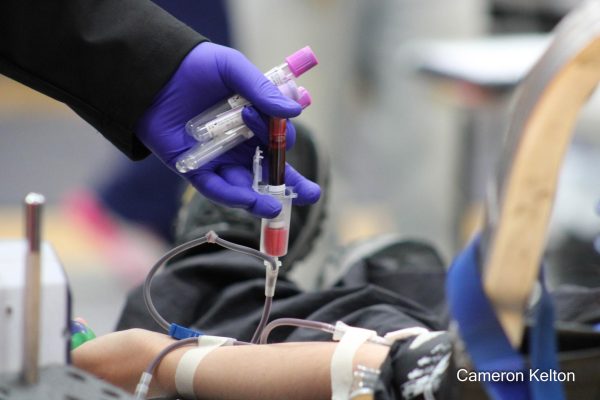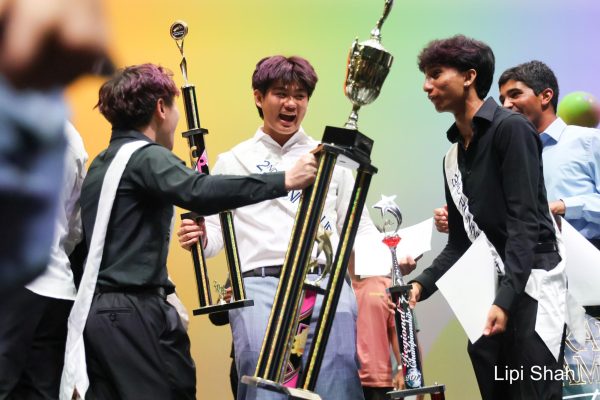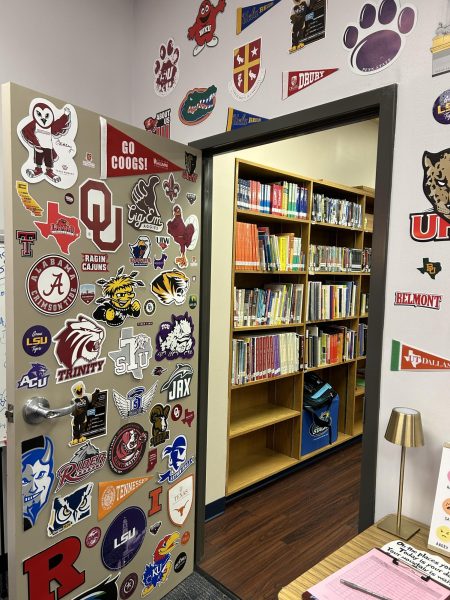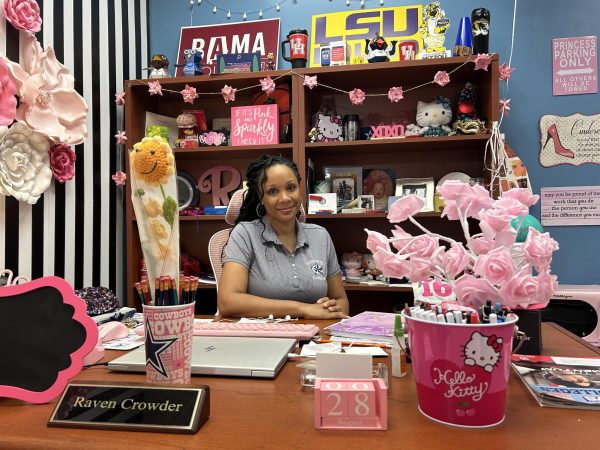Custom Barbies
In Barrett Swanson’s Harpers article “The Anxiety of Influencers”, a merciless piece on the emptiness of young adult identity reflected through the lens of the online world, he mentions a student’s revelation in one of his classes: “‘Wait, so on social media, it’s almost like I’m the product.’” And Swanson’s student gets it perfectly. We are the product, on and off social media, every time we enter a space in which we are analyzed for decision-making. This holds for college applications, too, as we enter deeper into autumn and entangle ourselves in the hunt to complete the pieces of the so-called package.
Well, it’s both difficult and easy to admit, but this—the commodification of our experiences for essays, for resumes, to craft a package that represents a section of ourselves perfectly palatable to university admissions, has been killing me. The joy of the admissions preparation process lies in that unavoidable self-reflection, but the horror is in how you pick and choose to reconstruct an image of yourself flawed in the right ways, poised to grow in alignment with a college’s ideals. First you know a little more of yourself. Then you deny all that others do not wish to see, and present what’s left.
How much heart can you put in an application? I try to be as honest as I can, because in all acts of writing I try to do so. It’s by default, see, when your writing originated by watching the world. But still, when you continuously look at your own work, your own life from two perspectives—yours, and an outsider’s—your truth can’t help but waver, even if only by omission.
If the you in your mouth is 80% ugly and 20% beautiful, but you think the correct ratio is 2:8, it will slip in. It will feel like a stone in the back of your throat, sand underneath your fingernails, grit in your eyes. Facts about you stretched filmy. Sadly, even when something is so gossamer-thin it could rip on the edge of a fingernail, it still matters whether it’s beautiful or ugly.
—
In an argument essay in AP Lang last year, juniors were asked to support or contest, with evidence, the claim that photography did not tell the truth, but rather the staged truth—which is no longer truth in its purest form. Consider the nature of truth in the college application. Can a collection of personal essays reflecting on the most important things in our short lives, our grand and yet realistic aspirations, the events that lifted us from a teenager to a MIT applicant—can they, in conjunction with an artfully arranged list of extracurriculars and procured recommendations, tell a unique yet still-honest story?
I think that the very structure of applications themselves necessitate a type of subtle deception. It’s like a spotlight on stage, highlighting the hooped three-layer skirt adorned with ruffles and bows, the near-mathematical curve of the prima donna’s extended arm, and leaving all the rest of the rotting stage in quiet blue darkness. It’s like the tidy little bedroom, and the shut door of the closet holding back seven months’ worth of unwashed laundry and stinking trash. It’s the unacknowledgement, the deliberate framing, that is the deniable deception, the fractional untruth.
But what about the backdrop dancers to the stage, the reworn shirts? They are our everyday lives. They are as much of us as the principal dancer and the neatly-made bed before we crawl in for the night. Forget the trash and the rot; I speak of our everyday shortcomings, our unproductive hobbies, the actions we take because we love outside our showable brilliance. Between one red carpet and the next, they’re the paved roads and toll-free highways at which we spend the most time with ourselves. But simply because they aren’t jewels of uncalculated giving, of service, of intelligence, of grit—elements kissed and fawned over on applications—they don’t make it into our self-made profiles of ourselves.
Example: Haikyuu!! restructured the way I consumed fiction. I won’t say much because I lack the efficiency to explain the magnitude of its effect, but stories can be loved consciously when the root of that love is investigated, and the change it creates can be so much greater. A manga held my hands through much of 2020, but I can hardly list “read, loved, thought at length about Haikyuu!! by Furudate Haruichi” on my resume, can I? Not when it’s so self-contained. Not when this is a section of my person that can’t be applied to the wider world, even if it’s true.
On August 19th, I wrote to myself without any additional explanation: “Nothing is sacred any longer!” I think I’ll understand, even years later. We remake our lives in our mind, plucking out every instant we spent time and put in heart, sorting them into ‘useful’ and ‘useless’ bins. Our past is shamed into greyscale, only values remaining. The origin of our laughter is no longer golden.
—
Return to the artifice of photographs from the argument essay mentioned above, as described by Susan Sontag in On Photography:
In contrast to the amorous relation, which is based on how something looks, understanding is based on how it functions. And functioning takes place in time and must be explained in time. Only that which narrates can make us understand.
I raise you this, Susan: a photograph is a portrayal that purports truth. A narration places it within context, and gains truth through that. But the framing of the narrative, how it twists and turns around the event of the photograph—or, in our case, the answer to the CommonApp prompt—does not always facilitate understanding. What I’m saying is this: the essay, which is narrated by oneself and provides context for the moment, the turn, the climax, the awakening, can still leave the reader in the same state of false comprehension as a photograph on its own.
Only that which is lived through does not have the propensity to be revealed a lie. All ideas—and that’s what this all is, ideas, whether it be a photograph displaying an ideal or a tragedy, an essay telling a shade of periwinkle or the rise of the economic aristocracy, pass through mediums and distort. Our sorrowful human theme of trying to understand another, trying to be seen by another, chases us through literature and movies and shows. Romeo and Juliet’s minds were alike enough to die alike, but not connected. Not telepathic. Else the poison would have given way to knowledge. You are no fated lover with your admissions officer; then, I ask you, how can the ideas of your 650-word essay ever hope to reach that admissions officer in full, unsullied by bias or circumstance, or even in half?
Even as your eyes pass over these words, dear reader, I have no idea what you’ve read out of my work, and neither do you know if you’ve found what I intended to express. Essays written in neutrality are to be misconstrued or seen in an alternate light, not to mention in argument. That’s the beauty and ugliness of it, and if we can, we use it to our advantage—to seem human, imperfectly so, but not incorrigibly; to peel away our skin to display burnt orange for the Longhorns, California gold for the Bears, instead of a terrible patchwork of veins and longing and confusion.
—
In piecing together my application, I ask: is it selfish of me to act first of passion and then of empathy? I write first to sort myself out, and then share it second in the hopes that after the five minutes it takes to read, someone comes away considering their own position. Is it a deception to present it as if the switched edition is more common, or perhaps a union of the two is my core purpose? It isn’t to say that’s not me, but that’s not entirely me. It’s a misreading, and one that I willingly let happen—hope happened and will continue to happen, actually, because being misread positively was the intention. However horrid it makes me feel. Like a wooden string puppet that’s been deconstructed and put back together wrong, limbs mismatched and stitches in place of buttons, buttons in place of felt fragments. But this puppet of controlled vulnerability and tucked edges is what works, not for myself but for others, and we know what counts. We know what the end goal is.
Perhaps in the pursuit of this end goal, parts of the application without the element of context are more susceptible to half-lies by omission. Consider a person that has in their hands an opportunity. Two scenarios: the first, in which they were bestowed this opportunity through connections; the second, in which they sought out this opportunity all on their own. Sent emails, visited offices, made phone calls, did research. These two scenarios yield the same result, a shining first-place spot on the extracurriculars list—a successfully completed opportunity.
Without context, in the eyes of a stranger, an admissions officer, the results hold the same weight and therefore produce the same effect in their decisions. Is this fair? No. But is this necessarily dishonesty, if in both scenarios the opportunity was completed by the person themself? In terms of measurable impact, does how this opportunity came to be matter? If both research papers garner seven citations, if both nonprofits raise two thousand dollars. Initiative, a trait coveted by society and presumably the university, can be both projected and suppressed depending on how it’s played.
And really, it’s just how it’s played; how cleverly the photograph is given context, how tightly the laundry is shoved into the closet, how invisible the backdrop dancers can become. How we become words on the screen through the linkage of Naviance and ApplyTexas, our sly smiles fitted into word limits, our shuddering dreams clicked on in the drop-down selection of areas of interest, our light we seek to diffract and specify.
It’s like those lines from Amy Jannotti’s poem “DRAMA (REPOST)”: “WELCOME, ENCORE MANIA PERFORMANCE. AUDIENCE OF (PERCEPTIVELY) BLAMELESS HANDS. (…) THE YASSIFICATION WILL BE TELEVISED.” Welcome, top college. See the closed scar on my hip and not the festering wound on my back. My glorification unraveled twines itself into the lines of your Latin motto.
Currently, we’re all in the process of constructing multiple dolls of ourselves, tailored to each college we apply to. Each of them have our school rank and GPA stamped on the neck, but the hairstyle varies by essay prompt, the pose by intended major, the plastic shoes by deadline. Each of them are cookie-cutter and yet made in our own unique molds; free from blemishes, except for those you allow to surface. Perfection not in spite of limitations, but because of.
And yet—they’re just Barbie dolls that you made. A creation of human image does not always yield a Frankenstein or a creature that surpasses its master. Most often, it is but a hologram made significant because it was given care.
Pygmalion’s ivory statue awoke into soft flesh from the blessing of love, but before that came time; the hours and days and months Pygmalion spent carving her likeness, pouring all desire and devotion into his work. You present the finished sculpture as your key into the wider world, but remember: you were first, and for you to have completed this sculpture, you must have acknowledged the humanity of it. The soul of it is yours, and simply because you shared soul, imbued it into a shell bearing your name and face, does not mean you have lost any. After all, you aren’t the product. You’re just you, and wonderfully you. A judgment—an acceptance, a deferral, a rejection—passed on your cherry-picked avatar is only a judgment passed on a facade.
So go forth and sic your Barbie dolls on universities, come winter.
**Disclaimer, or a reflection: This is not to say the application is devoid of value, or that the university is at fault for creating a holistic review process, or that there is only loss to be gained. In thinking closely about the past, there will be inevitable growth and honesty. Have I not written this essay? It is painful to dissect yourself. It is good to do it at least once in your lifetime. I only wish to say: in the categorization and labeling of that dissection, you are still whole. There, the metaphor explained with another metaphor.
References
- The Anxiety of Influences, Barrett Swanson. https://harpers.org/archive/2021/06/tiktok-house-collab-house-the-anxiety-of-influencers/
- “Experience itself has been reduced to instrumental function, via the college essay.” Don’t Send Your Kid to the Ivy League, William Deresiewicz. https://newrepublic.com/article/118747/ivy-league-schools-are-overrated-send-your-kids-elsewhere (Recommended, a response: What College Can’t Do, Joshua Rothman. https://www.newyorker.com/books/joshua-rothman/what-college-cant-do)
- On Photography, Susan Sontag. http://www.susansontag.com/SusanSontag/books/onPhotography.shtml
- DRAMA (REPOST), Amy Jannotti. https://thediphthonglit.wixsite.com/home/summer22
I’m Anna Lin, a senior. I sometimes write.






Jenny • Oct 25, 2022 at 11:19 pm
Really interesting article reflecting dilemma high school students face at time of college application. Author goes much deeper than a usual reflection though, it’s a piercing one. It almost interrogates everyone who has done a similar “choosing the convenient truth” act. Youthful mind is so marvelous.